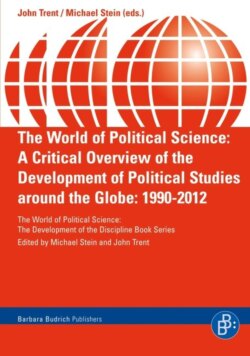Читать книгу The World of Political Science - Группа авторов - Страница 25
На сайте Литреса книга снята с продажи.
6. Conclusion
ОглавлениеWhat are the three political sciences in associated democracies in East Asia like when they are examined comparatively with political science in an auto-centric democracy such as the United States? Whether it is disaffected, third-wave or possibly fledgling, it is clear that the East Asian democracies have been treading the path of democratic development associated with American democracy. Similarly, the three political sciences have been making strides in their development associated with America’s auto-centric political science in one way or another. But all this does not necessarily mean that the three East Asian political sciences have been dominated by American political science. Rather empirical realities pose key questions to political scientists, who in turn seek conceptual and methodological guidance from American political science. In Japan why is disaffection from political leaders and institutions so pervasive? In Korea why is anti-Americanism so vehement 15 years after democratic transition? In China why are leadership cadres so distrustful of people and so un-transparent and unaccountable? These are some of the key questions that guide their political sciences. Clearly the need to more closely and systematically examine the rise and fall of popular topics in relation to the evolving nature of regime characteristics continues to exist. Although much remains to be done, it is most important to recognize that the nature of each political science community is well grounded in the evolving nature of politics and society in which each of these communities are embedded. What is the place and role of American political science in the development of the three East Asian political sciences? The primary role of American political science is conceptual. American political science offers initial guidance to answering these questions. In this sense American political science has been playing a leading role. American political science has been a most auto-centric political science in the sense that it evolves around its own professionally competitive drive, and does not care much about what’s going on elsewhere, still its conceptual influence often reaches beyond its border. In this sense also, American political science has been instrumental in promoting American style democracy abroad.
* A number of friends enlightened me immensely. They include: Chung-Si Ahn (Seoul National University), Dingping Guo (Fudan University), Baogang He (University of Tasmania), Daisong Hyun (University of Tokyo), Chan Wook Park (Seoul National University), and Doh Chull Shin (University of Missouri). Clearly a friend in need is a friend indeed. My heartfelt gratitude to all of them. The amount of their suggested readings has clearly surpassed my ability to digest them in the four languages in a fairly short span of time. I owe a debt to Dingping Guo and Chan Wook Park, in that portions on China and Korea heavily draw on their writings, Guo (2006) and Park (2006).
